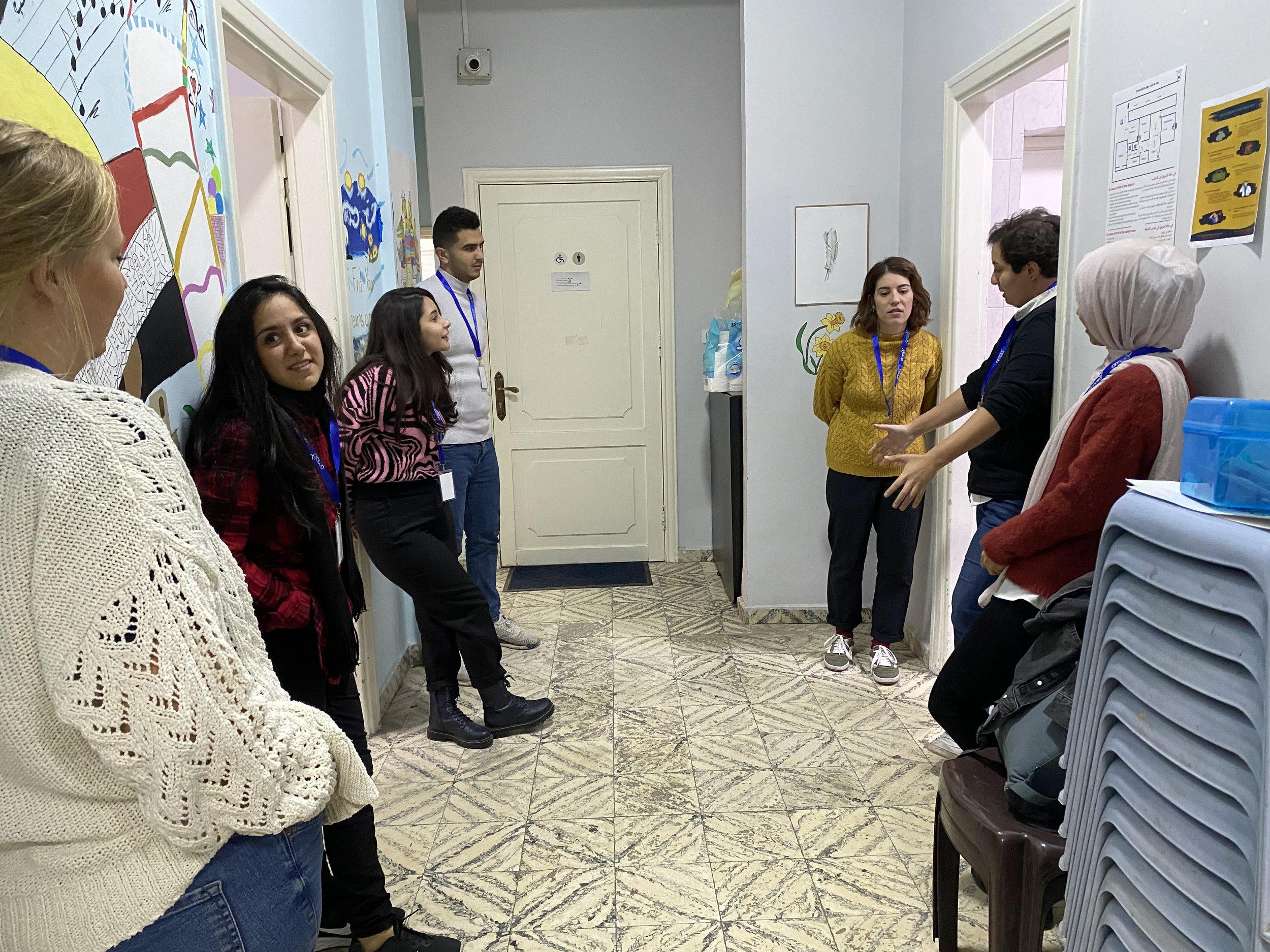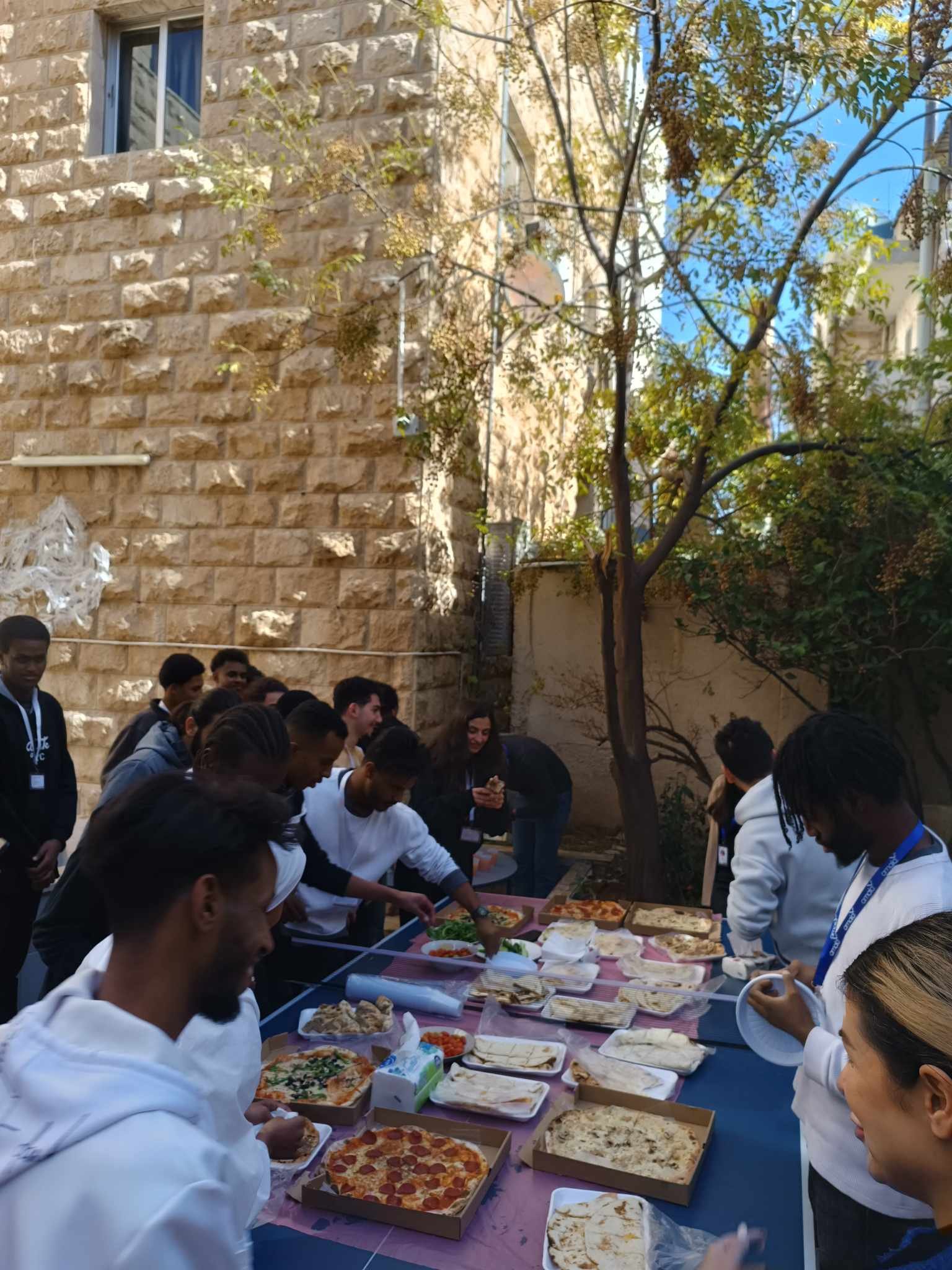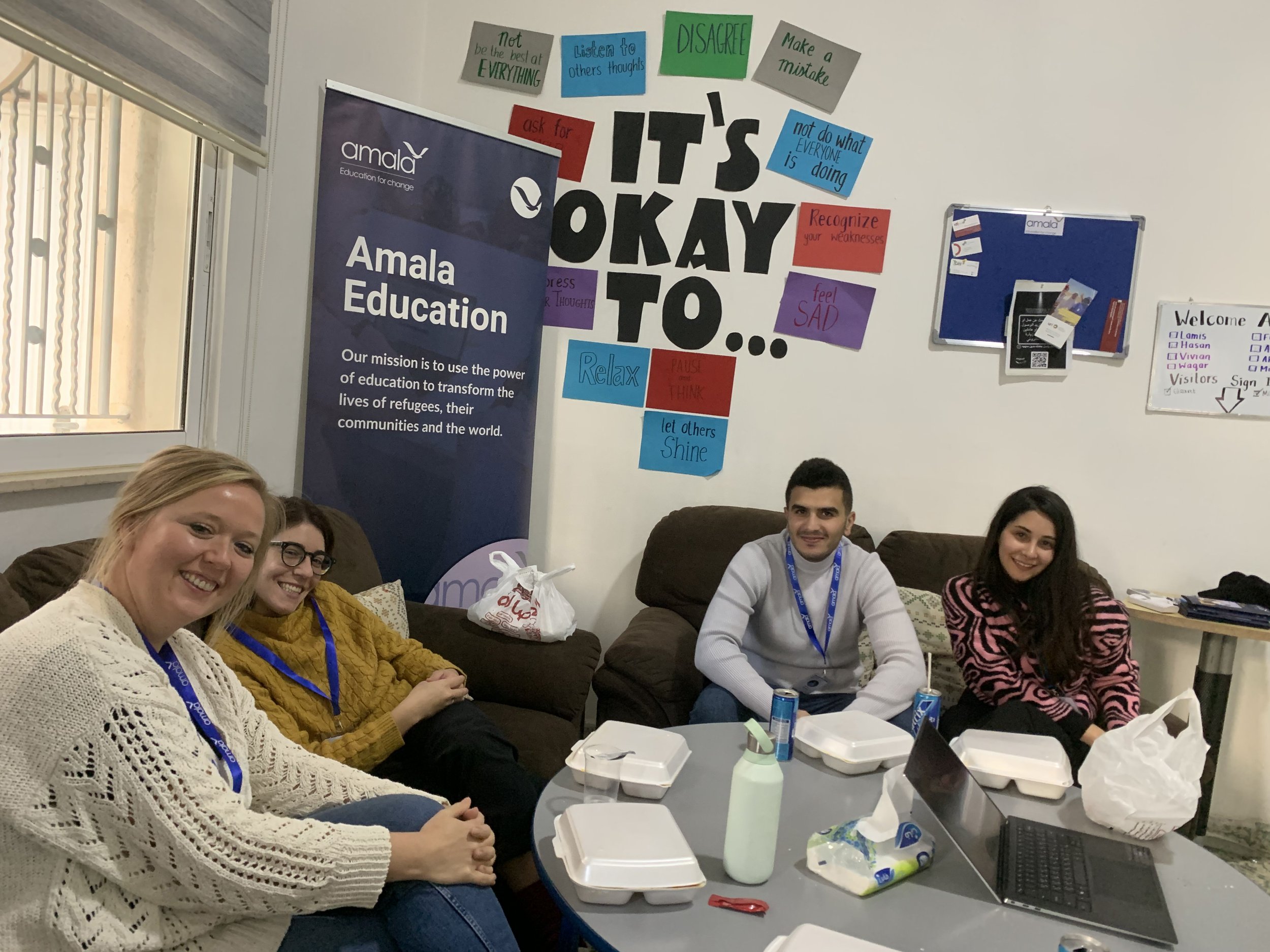Reflecting on accreditation: connecting learning and growth
A blog by Elissavet Karamichail, Education and Accreditation Coordinator
Amala has been in the accreditation cycle with the Council of International Schools (CIS) and the New England Association of Schools and Colleges (NEASC) for the past three years. In that time, most of us on the Amala team had heard a thing or two about this work and its importance for our students’ prospects and pathways. What we could not fully grasp back when we embarked on the final stage of the self-study and Team Evaluation visit back in October 2022 was the learning and growth that the whole team was about to undergo and how this process would bring our Global, Jordan and Kenya teams together.
Coordinating the final stage of the accreditation process sounded like a very exciting task to take on back in September 2022, when Amala Co-founders Mia and Polly asked me if I’d be interested. The importance of the end goal coupled with the challenge of how to support a team across three continents to do quite demanding work collaboratively in order to demonstrate that we meet international standards of high quality education seemed quite complex. To add to that complexity, Amala is far from what would be considered a “traditional school” and our programme, specifically designed for displaced youth who cannot complete secondary education in the countries in which they live, does not, in many ways, look like the programmes the world knows about.
We began the self-study work about 15 months ago. The first step was to create the committees —- smaller teams that were going to work in different areas. Lizzie Bray came on as our Accreditation Consultant to support us in this work. I remember Lizzie’s surprise when she realised that the whole team was just 25 people rather than around the 100 that she was expecting. It was a very big task for a very small team. Everyone took up a number of different roles to make sure that all areas of work could progress in time. The volume of work was very high and often very different in nature to what many of the 25 members of staff did in their day-to-day work. However, everyone felt a strong passion and commitment to critically evaluate our practices. We aimed to make necessary improvements to ensure the highest quality of learning and provide our students with a recognised qualification.
After months of hard work, improvements across all areas, from Health and Safety to Safeguarding, to facilitator professional development and significant adult engagement, we welcomed our on-site and online evaluators from NEASC and CIS in the week of 30th November to 6th December at our learning centres in Amman and Kakuma Camp. The evaluators came to see whether our self-study report spoke to the work taking place on site and understood the full picture of student learning and experience on the Amala High School Diploma Programme. They observed lessons and facilitator development sessions, spoke with students, spoke with students’ parents, guardians and significant adults, saw our centres, visited alumni projects, and spoke to our team. Everyone was so excited to be part of such a big moment for Amala and spoke passionately about its mission, how it is a place of learning, growth and belonging. A particularly moving moment was when parents of students at the Jordan site came out of a meeting with the evaluators and shared with the team that they wished they had more opportunities to advocate for Amala. One of the mothers said:
“Amala changed my home. It changed the life of my boys and it even changed me. It calmed down my anxieties to see my boys being part of Amala”.
Two weeks after the end of the visit, the team has been reflecting on all the incredible work that went into the self-study and Team Evaluation in the past 15 months. The Amala team has never before been so aligned around what we do and why we do it, what our strengths are and where we look to grow. Our commitment to ensuring that our students do not lack opportunities because of displacement permeates every aspect of our work. As we wrap up team celebrations and are about to go on some very well-deserved holidays, we are looking forward to hearing about the final outcome of this effort in early 2024. We are grateful that NEASC and CIS have kept their eyes and ears open to finding ways to ensure that no young person is deprived of the opportunity to complete their high school education. And we are hopeful that becoming accredited will not only help Amala to grow our reach and enable more displaced young people to complete their secondary education and access further pathways, but will also draw more of the world’s attention to ensuring that no young person is excluded from their right to high quality lifeworthy learning.






